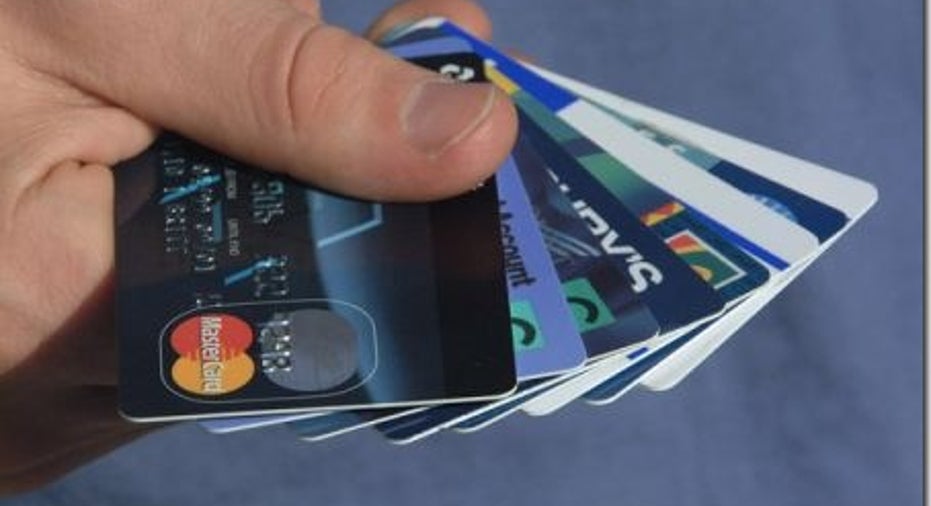Taken to Court for Card Debt? What to Expect

If you think ignoring a creditor's calls about an unpaid credit card debt will make the calls stop, you may be right. The creditor may send someone to your door to let you know "you've been served," instead.
If a debt goes unpaid and you've made no plans to repay it, your credit card company may sue you in civil court for the balance, hoping a judge will order you to pay. Not only could a judgment in the creditor's favor possibly allow them to seize your property or take the money you owe directly from your bank account or salary, but it could leave you responsible for all court-related costs associated with the lawsuit, as well.
While any legal action taken against you is a serious matter, there are steps you can take after receiving a summons to appear in court that could lessen the blow.
1. Try to stop the lawsuit. Most creditors would rather settle a case without the hassle of going to court. If you've been sued, contact the creditor immediately to see if there is anything that can be done to stop the lawsuit from moving forward, says Cristy Cash, director of counseling at Consumer Credit Counseling Service (CCCS) of Central Oklahoma.
That strategy worked for Kenny Golde, a filmmaker who was producing a movie when his business partner died suddenly in 2007, leaving him in debt. After receiving a summons from a credit card issuer to which he owed $22,000, "I was like, 'Oh my gosh, I'm being sued,'" says Golde, who wrote about getting out of debt in the book, "The Do-It-Yourself Bailout." Before the case could go further, Golde spoke to the creditor. He agreed to settle the case by paying the issuer $10,000 and the lawsuit was withdrawn.
2. Contact a lawyer. Sometimes a creditor isn't willing to withdraw the lawsuit, or you may believe you aren't responsible for the debt. While you don't have to get professional legal representation, a lawyer can help you construct a defense and guide you through the court proceedings. You can find a lawyer who specializes in debt collection law through the National Association of Consumer Advocates or your local bar association, says Colin Mabrito, a partner with the Houston-based consumer law firm Joseph & Mabrito. If money is an issue, you may qualify for free or low-cost legal aid through such programs as ProBonoNet, a volunteer network of attorneys. You can also represent yourself but hire an attorney for a limited scope engagement, meaning he or she would consult with you on a limited basis, Mabrito says. "Most lawyers offer a free consultation. You have nothing to lose by taking advantage of it," Mabrito adds.
3. Consider your defense. Just because you're sued by your credit card company doesn't mean you should expect an automatic loss. The creditor must prove that you owe the money, says Erik Kardatzke, a credit card debt attorney in Coral Gables, Fla. For example, you may win if the creditor doesn't have all of the records pertaining to your case, which is not uncommon particularly when you're being sued by a company that bought your debt from a credit card issuer, Kardatzke adds. Among the other reasons you might win your case: The statute of limitations is up for collecting on the debt in your state; the creditor failed to credit you for payments that were already made; or you were only an authorized user on the account and not liable for the debt.
4. Respond to the summons. Once you're served, you have a set amount of time -- typically 20 to 30 days -- to prepare and file a response. A failure to do so is arguably the worst thing you can do because the creditor automatically wins a default judgment against you and, in some states, can garnish your wages or bank account. In the response, you agree or disagree with the allegations that have been brought against you and raise any defenses you have.
5. Follow the court proceedings. Depending upon what state you live in and the particulars of your case, a number of proceedings can occur. There may be a process called "discovery," in which both parties get more information from each other and from other witnesses. For example, your attorney or the creditor's attorney may take depositions, which are oral statements conducted under oath before trial. If you have no defense and don't deny owing the money, the creditor may request a summary judgment, which is a ruling by the judge in favor of the creditor without the need for a trial. Likewise, your attorney may seek to have the case dismissed because of a lack of evidence. If the proceedings continue to go forward, there will eventually be a trial date where you must show up in court to argue your case and respond to the allegations against you before a judge. Other witnesses, such as employees of the credit card company, may also testify. Most cases never make it to trial, says Kardatzke, as both parties typically find it beneficial to come up with some kind of settlement before it gets that far.
6. Accept the judgment. If you lose the lawsuit and are found liable for the debt, work with the creditor to come up with a payment plan so you can avoid drastic measures such as garnishment. Once the case is over, you can get to the business of putting your financial life back together. "You have to deal with the legal issues first," says CCCS's Cash. "But once your situation is a little more stabilized you can start thinking about rebuilding your credit."
See related: How much can a debt collector take from your paycheck?, How to sue a debt collector -- and win



















